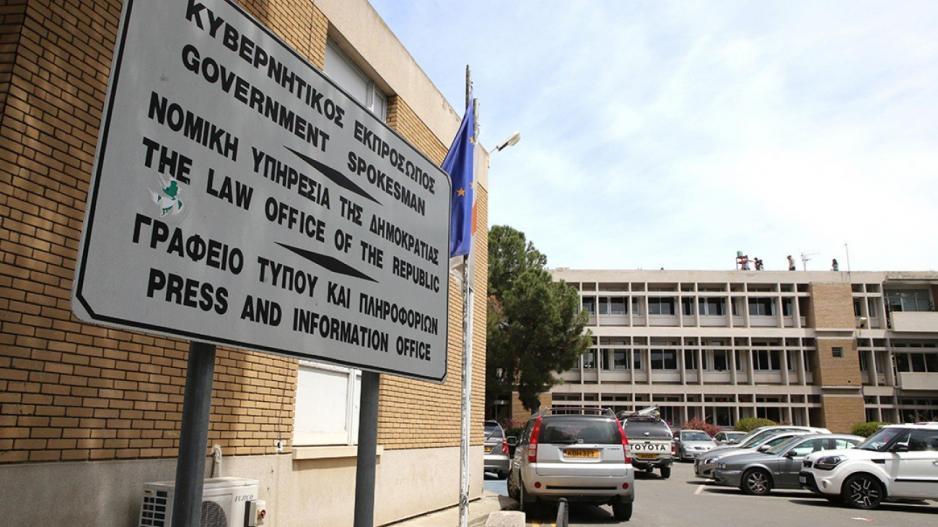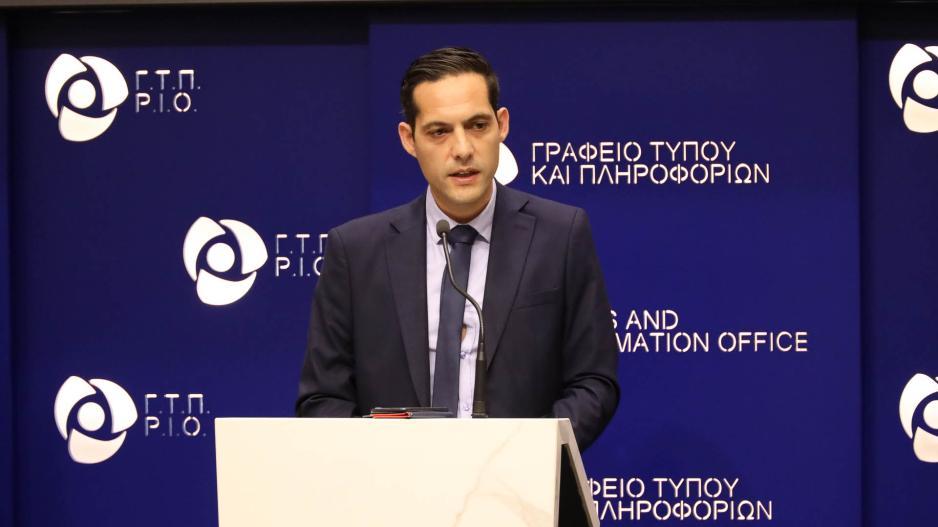The 5 Key Reforms the Government is Pushing Forward
Reforms Include Restructuring Legal Services, Auditing Authorities, and Electoral Law Adjustments
On Wednesday, Government Spokesperson Konstantinos Letymbiotis announced that the government is advancing a series of institutional reforms, including the separation of the current roles of the Attorney General and Assistant Attorney General, as well as the establishment of an Audit Council. These reforms were discussed and given preliminary approval during a Cabinet meeting at the Presidential Palace.
According to Letymbiotis, the Cabinet approved the framework of these reforms, which were developed in consultation with the Ministries of Justice and Public Order, Finance, and Interior.

The first reform focuses on separating the roles of the Attorney General and the Assistant Attorney General. A new office of the Public Prosecutor General and Assistant Public Prosecutor General will be created.
Letymbiotis explained that the Attorney General will remain the state’s legal advisor and head of the Legal Service, with the Assistant Attorney General continuing in a subordinate role. However, the prosecutorial duties currently held by the Attorney General will be transferred to the newly created offices of the Public Prosecutor General and Assistant Public Prosecutor General.
Additionally, the reforms will introduce fixed terms for officials within both prosecutorial and law enforcement bodies. These changes are aligned with recommendations from European and international organizations, such as the European Commission on the Rule of Law and the Council of Europe's Group of States Against Corruption (GRECO).
This reform will require amendments to certain non-fundamental provisions of the Constitution, which pertain to the Attorney General's responsibilities, as well as the creation or revision of various laws.
The second reform involves establishing an Audit Council, consisting of the Auditor General as President, the Assistant Auditor General as Vice President, and three members. The proposed regulations will also define the terms of office for the Auditor General, the Assistant Auditor General, and the Council members. These measures "aim to further strengthen the independence, efficiency, and collective decision-making within the Audit Office," according to the spokesperson.
"The European Commission's Rule of Law Report makes no mention of the need to modernize the Audit Office," commented the Auditor General, Odysseas Michaelides, during yesterday's meeting of the relevant parliamentary committee. During the session, the main points of the proposed reforms were presented.

The third reform, Letymbiotis continued, concerns the revision of the legislative framework regarding pensions for public officials. This reform includes two key proposals: raising the retirement age for all officials from the current 60 years to 65 and introducing the option for officials holding multiple roles to forgo their state pension to avoid receiving multiple pensions. Public officials such as the President of the Republic, members of the House of Representatives, Ministers, Deputy Ministers, and Mayors will be able to declare their intent to forgo any state pension by submitting a declaration to the Ministry of Finance.
Letymbiotis emphasized that the Ministry of Finance thoroughly studied this issue and submitted these proposals to streamline the pension framework for public officials. The proposals were informed by guidance from the Legal Service and by evaluating several legislative bills.
The fourth reform involves revising electoral legislation by automatically registering citizens on the permanent electoral roll, granting them the right to vote in all national elections.
The fifth reform aims to lower the voting age to 17.
These electoral reforms, according to Letymbiotis, are designed to promote democratic engagement among younger generations and simplify the voting process, encouraging broader participation in the democratic process.
After approving the framework of these proposed institutional reforms, the Cabinet authorized the relevant Ministers to take immediate action in advancing the reforms and submitting the necessary legislation.

Letymbiotis noted that these reforms, which address issues of modernization for the first time since the founding of the Republic of Cyprus, fall under the government’s broader modernization agenda. This agenda seeks to reinforce good governance principles within the state's structures and actions, update the functioning of important institutions, enhance the rule of law, transparency, and accountability, and rectify longstanding inefficiencies that have sparked public criticism. It also aims to expand participatory democracy and restore public trust in the nation's institutions.
When asked about the concerns raised by the Attorney General regarding the separation of powers and the possibility of delays in the legal review, Letymbiotis reiterated that the government's goal is to present the reform framework to the Cabinet and Parliament by 2024.
He added that the Justice Minister has already met with the Attorney General and the Assistant Attorney General to promote the bill, which the government expects to advance within the year.
Letymbiotis concluded by mentioning that, barring unforeseen circumstances, the Ministry of Finance is expected to submit two proposals concerning public officials' pension benefits at the next Cabinet meeting, scheduled for next week.






